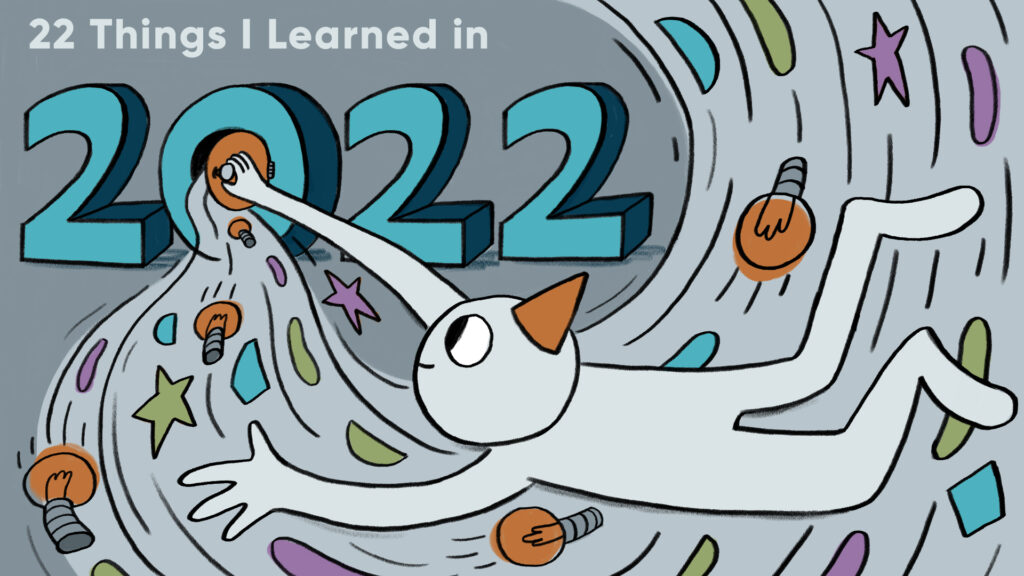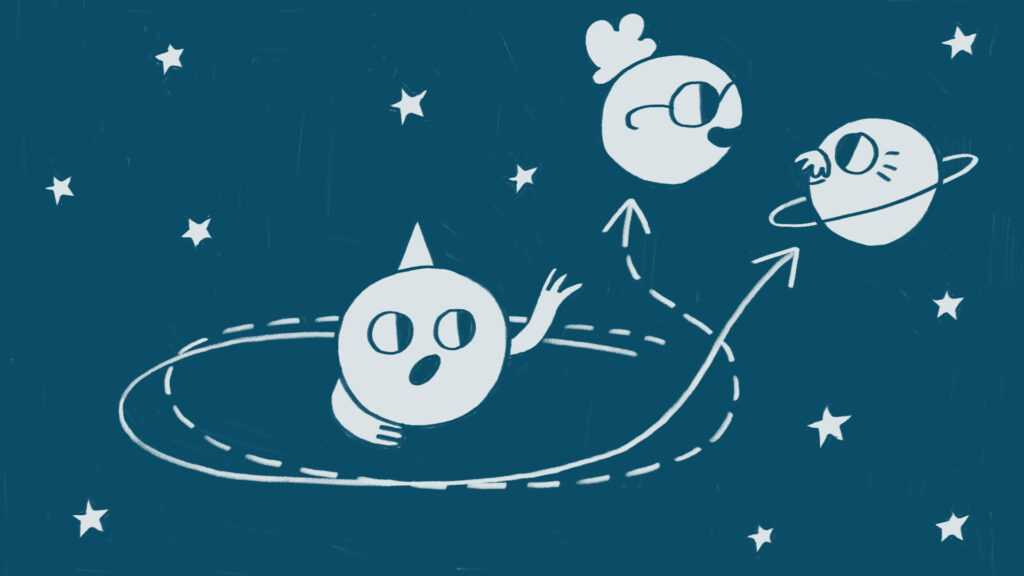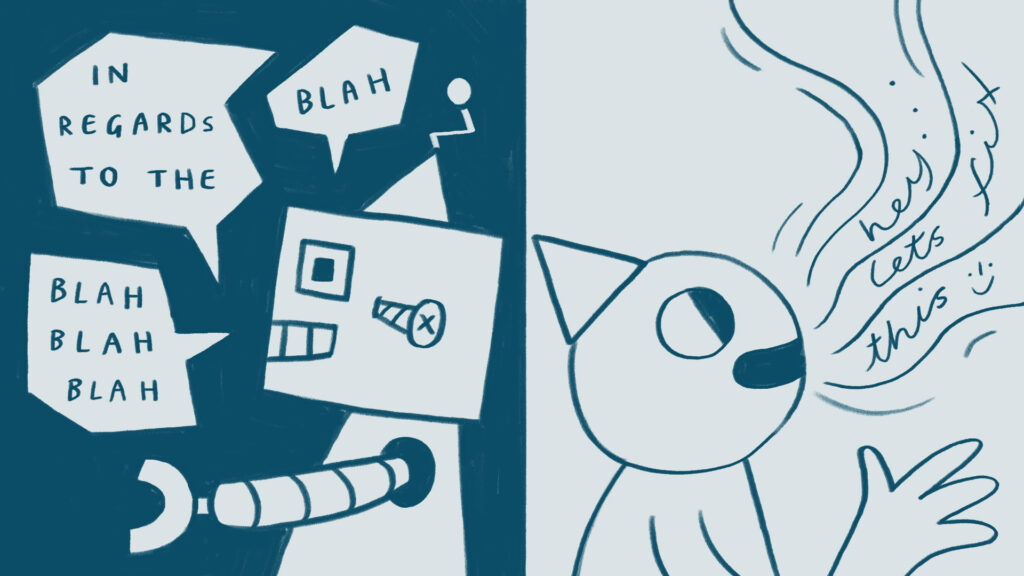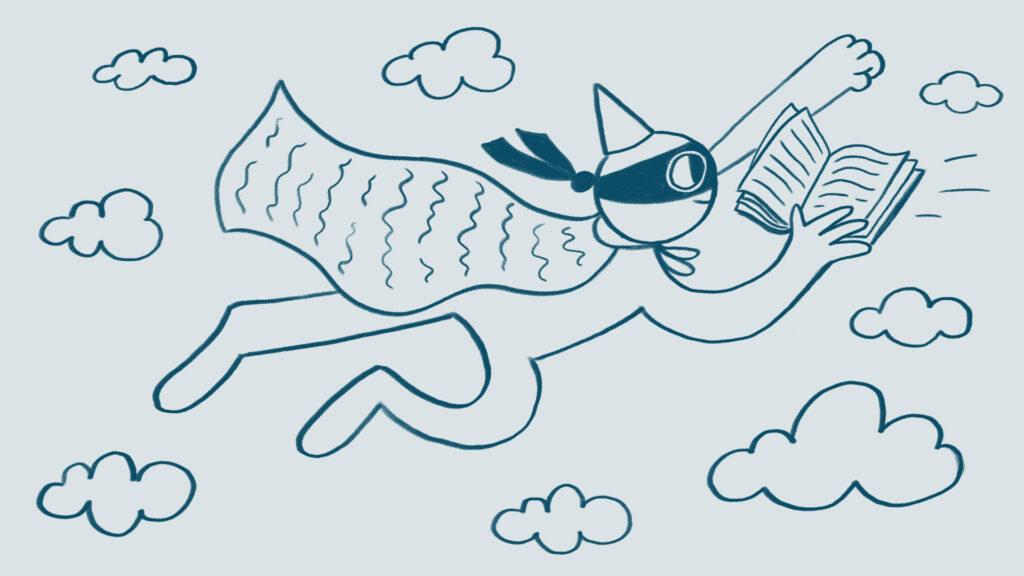2022 was a big year for me; I entered my last year of medical school, this whole YouTube thing became very real, and I finally figured out how to get my freezer ice machine to work. Here are 22 things I learned in 2022 (I wish I had known earlier).
Here are 22 things that I have learned in 2022.

1. Scheduling Things
Scheduling as many things as possible is the key to success. Apple calendar guides me to when I am going to study, what I am going to study, where I am going to study when I am going to script YouTube videos when I am going to work out, when I am going to meditate, and pretty much everything else in my life.
Importantly, now that I use Calendly when scheduling meetings or Podcasts, I want to make sure that what I schedule is so important that it’s worth pushing off a potential meeting or podcast for. Because once that event is in my apple calendar, that time slot is unavailable for a booking on Calendly.
I don’t stick to the schedule 100%, but it is a great way to keep me focused. Also, it helps me retrospectively see how I am spending my time.
2. Calling Customer Service
Two-minute wait time, and my problem was solved in five minutes; this is something I never expected from customer service. Amazon, Apple, delivery food services, and pretty much anything you use has free and helpful customer service. Sure I’ll do the initial search on google for a fix, but after that, why not just speak to the expert? Why not speak to someone who spends their entire day solving these problems?
The greatest customer service I’ve seen is with hobbyist services, like Final Cut Pro, Photoshop, and WP Engine. Next time you are having issues, try calling customer service instead of spending hours trying to figure it out yourself.
3. Your Parents are People

They have hopes, and dreams, are occasionally sad, are sometimes frustrated, make mistakes, and have personal problems. Their entire life doesn’t revolve around their children, even if we are a large part of their lives.
Don’t expect 100% amazing kindness or helpfulness from them all the time; who knows, maybe you can be the one helping them. You likely will be when they get older.
4. Friends and Family are Important
Along the same lines as above, people in my life have died or moved away in the past year. The people you care most about, just like you, could suddenly disappear tomorrow. I don’t say this to scare you; I say this to realize it’s a possibility. We don’t live forever.
When was the last time you made time for someone important in your life? A sister? A good friend?
I’ve started occasionally calling my good friends who have moved away maybe once every six months, and it’s nice; I get updates on their life, I hear about what they are doing, and then the next time we are in town, we hang out in person. It’s easy to do as well: text them, “are you free to chat for no apparent reason at XYZ?” or just call them; no one is busy 100% of the time.
5. Aim for people to respect me, not like me
As my face is appearing more and more on the internet, more and more people have comments on what I am doing. Now, surprisingly, most of these comments are not only kind but also helpful (thanks guys). However, there are definitely a few people who dislike what I am doing or just don’t like me in general, and I’m fine with that.
However, the important thing for me is to ensure I am still respected, at least by myself and then, hopefully, by others. Would I appreciate the content if I watched my videos or read my blogs? Maybe I would disagree with the point of view, but would I respect how it was presented? The authenticity of the presenter? I aim for respect as opposed to being liked.
6. Free Time is Good
In my first tip, I say to schedule everything importantly; however, I plan only important things. Free time is usually when I can relax, hang out with friends, or work on a new project. Every second of every day doesn’t need to be filled.
I’ve eliminated many things in my life this year to have more free time. I don’t drink and go out on the weekends anymore because that destroys my night and the following day. I don’t grab coffee or lunches with people who weren’t friends with me before I started on YouTube. I don’t watch hours of TV a day or play video games as much anymore because of how valuable this free time is.
I created this YouTube channel in my free time.
7. Communicate on email like a human

Compare, “Dear John, in regards to the aforementioned…” to, “Hey John, how can we fix this?”
If the person on the other end of the email is a human, treat them like a human. Some of the most successful people I know communicate professionally but normally. Don’t use fancy words, go to a thesaurus, or overly formalize your email. There is no point, and it actually hinders the real point of email communication.
Of course, use proper grammar and be professional, but no need to be snooty; it doesn’t help anyone.
8. Meditation
Meditation is one of the few things that has produced a much greater effect from the effort put in. I meditate for 10-20 minutes after a cold shower in the morning, followed by journaling.
I’ve found it a great stop point before my day begins. Plus, there is this nice calm feeling during meditation that I can now access anytime, anywhere in the world.
People who meditate are less stressed and and it’s so powerful meditation is even used as an add-on treatment for depression and anxiety.1
I like Insight Timer or this guide for a free meditation guide and Calm or Headspace for paid meditation guides.
9. Journaling
Similar to meditation, the effect is much more significant than the effort.
Here’s what I do:
- Brain dump for 5 minutes (whatever’s on my mind)
- One big goal for the day
- Two things I am grateful for
- Three small goals for the day
10. Cold Exposure
The evidence for cold exposure is tricky. There may be small benefits compared to controls, but these are tiny studies.3 There may be some lasting increases in dopamine, norepinephrine, and epinephrine after cold exposure. Cold exposure seems to be a reasonably effective recovery tool after high-intensity endurance training exercises.2 According to the evidence, cold immersion to the neck is the best as frequently and as cold as possible.* Finally, cold exposure will help shift your circadian rhythm towards a more “awake” state, so it is best to do it in the morning.
Here is why cold exposure is worth it, however. Cold exposure builds mental toughness.
Stepping into a cold shower or an ice bath takes significant mental effort, and staying in requires even more. Improving your mental toughness will allow you to perform better in almost everything. I’ve worked harder on runs, studied longer, and worked longer on YouTube videos, my increased mental toughness, is partly all because of cold showers.
I start with a cold shower every day and have another after every workout session. In the future, I hope to get an ice bath or one of those automated cold bath setups.
11. Heat exposure is cool
Again, the heat exposure data is questionable. There seems to be an association with a couple of cardiovascular health indicators. However, there isn’t enough evidence, statistical power, or scientific explanation to say this is a cause of improved heart health.4,5
However, my main point is the same as before; heat exposure builds mental toughness. And finally, there is good evidence that people who shower before bed have better sleep.6
I step into a sauna four times a week for 10 minutes per session and have a warm shower one hour before bed.*
*Talk to your doctor before trying cold exposure or heat exposure training.
12. I can do anything I put my mind to
Building on the theme of mental toughness, I’ve learned I can accomplish nearly anything with consistency and time.
Starting a YouTube channel? Learning how to edit videos? Recording videos? Starting a podcast? Designing a website? Becoming accepted to medical school? Starting a business? Learning to code?
Many of these seemingly “impossible” achievements are not only possible but likely if I work consistently towards learning and completing them. I can learn anything. I can do anything. It is just a matter of time.
13. Anger solves nothing
I don’t know if I’ll ever have kids, but one parenting tip that has always stuck with me is to never punish in anger. Sure punish them, sure, be angry, but never together.
Ever remember being yelled at? Or being chastised publicly in a negative way? Did you actually change and learn from that experience or just resent your tormentors? Emotions, especially anger, have an amazing way of clouding judgment.
I rarely get angry; life’s too short, but when I do, I take time to cool down before I make any decisions or talk to anyone.
14. Listening is a learned skill
Most people are lucky to have the ability to hear, which means they can listen to the other person talking. However, does that mean these people are all listening? Definitely not.
Listening doesn’t only involve hearing what people say but paying attention to their facial and body expressions. How do they feel? Is what they are saying important to them? Not important to them? If I asked them about this topic, would it make them feel good or bad?
Is what this person saying making sense to me, or am I just nodding along to pass the time?
Listening is a skill, and like any skill, it can be improved.
15. Writing is Important
Even more difficult than listening is writing. I’m a writing novice. I often make grammatical errors, are redundant, and are boring. The problem with being a bad writer is that people can’t understand you, either. The benefit of being a good writer is people understand you better and can listen to you more easily.
The only way to improve? Practice, practice, practice. I work every single day on a blog posts, copywriting, or Twitter posts with the hopes of improving my abilities. Improving writing makes you a better speaker, consumer, salesman, copywriter, and more.
The habit of writing has changed my life.
16. Automate and Delegate as much as fucking possible
I pay a house cleaner, a talent agency, an assistant, an editor, an animator, and an illustrator. I pay for Zapier, Notion, Convertkit, Calendly, Topaz Labs, Quickbooks, Loom, Frame, Google Workspace, WPengine, Otter, and a couple more I’m forgetting. The yearly cost of these is probably upwards of $10,000 a year. Am I crazy? Or does this make sense? It makes sense.
When I delegate or automate, I am freeing time to do the things I am best at. Like filming YouTube videos or writing blog posts, that’s where my unique insight comes in. That is where my hours are best spent. I plan to automate and delegate much more as I continue on this internet and life journey.
Not only that, the people I delegate to or the computers that automate are better than me at the task I assign them. The only thing I wish I had started doing sooner is creating standard operating procedures (SOPs) for the people I delegate to.
Anyway, here are some things you can automate or delegate:
- Cleaning
- Cooking
- Laundry
- Scheduling
- Editing
- Writing
- Workplace administration
- Laundry
- Bills
- Your Home (AC, lights, locks, etc.)
17. Reading is a superpower

Reading improves writing, vocabulary, focus, and communication skills, no matter what you read. I alternate between non-fiction and fiction books. I stop any book that I don’t like.
I now read 30 minutes to one hour every day.
You can check out my favorite books I have read so far here. However, I think there are a couple of great lists on the internet of books to read in a lifetime. Currently, I’m reading Letters From a Stoic by Socrates.
- 100 Books to Read Before You Die – a great list that combines and correlates the top lists from Harvard, The Guardian, Amazon, Time Magazine, and The Telegraph to a list of 100 books.
- The Great Books List – Nat Eliason, a cool blogger I follow, has created “the great books project” with the essential classic books from all time in chronological order. He plans to read 233 books over five years, starting with the Epic of Gilgamesh from 2100 B.C. and ending with American pastoral from 1997.
18. Take all the blame, give all the credit
When I mess up, I own it. Here’s how to apologize correctly: “I was wrong, you are right, I am sorry.” And, most importantly, stop after that. Don’t blame anyone else.
When you are a part of a team that succeeds, especially if you are a leader of that team, make sure to give credit to your team. People, of course, will know that you had a part in the success, but building up the people around you will benefit you and them. Win-win.
19. Try just listening to music and doing nothing else, try walking, and doing nothing else, try eating and doing nothing else
A form of meditation is paying attention to only what I am doing. The problem with eating in front of the TV or listening to music at the gym is I realized I wasn’t getting enjoyment from those individual things anymore. I was just getting fun when both were combined: lifting heavy weights and listening to M&M or eating spaghetti while watching Adventure Time.
Initially, I felt emptiness and weakness when doing these activities alone (it likely has to do with dopamine), but over time, I regained my enjoyment from doing one task at a time. Now I can enjoy just lifting, or just eating, or just listening to music.
20. The squeaky wheel gets the oil
I found this cliche line true when I asked for research projects in medical school or recently working on getting podcast guests. Of course, you need tact, but the reminder emails, countless cold emails, and texts may create some success.
Crafting the perfect cold e-mail is another thing, but it is much easier to succeed with five sub-par emails than one ideal email.
Here’s why being squeaky is better: even if these people are interested in participating or helping you, they may be swamped. So they may see your request but become distracted, or, because they receive so many other emails or correspondences, they may never even see your initial email.
21. Everyone is shy, be the outgoing person
Most people are shy. I love my alone time and don’t want to participate in every social event. Social events sometimes even stress me out. Many, many people are like me, and many, many people are like you.
If I can stir up the confidence, even fake confidence, to speak to someone or introduce two people, I am often amazed at the friendly conversation or fun time created.
I try to talk to people I don’t know at my medical school when I play pick-up sports or at awkward meet-and-greets, mixers, or networking events. Usually, people at these things are there to make friends and meet people. If I can make one person feel comfortable and better about being there, that’s good enough. And, selfishly, I’ve made countless new friends and connections this way. In my past couple of years of being more outgoing, and I have to force myself every time, I’ve had maybe three harmful interactions from meeting 1,000+ new people. And, by “bad,” I mean they just ignored me.
22. A positive attitude goes a long way
Don’t complain. It accomplishes little and often bums people out. If I can come into a situation with an upbeat attitude, I have a higher chance of a positive outcome. I’ve experienced this in the hospital when meeting a new sick patient, chatting with people on the phone, or starting a tough workout.
Work Cited
- Saeed SA, Cunningham K, Bloch RM. Depression and Anxiety Disorders: Benefits of Exercise, Yoga, and Meditation. Am Fam Physician. 2019 May 15;99(10):620-627. PMID: 31083878.
- Moore, E., Fuller, J.T., Buckley, J.D. et al. Impact of Cold-Water Immersion Compared with Passive Recovery Following a Single Bout of Strenuous Exercise on Athletic Performance in Physically Active Participants: A Systematic Review with Meta-analysis and Meta-regression. Sports Med 52, 1667–1688 (2022). https://doi.org/10.1007/s40279-022-01644-9
- Šrámek, P., Šimečková, M., Janský, L. et al. Human physiological responses to immersion into water of different temperatures. Eur J Appl Physiol 81, 436–442 (2000). https://doi.org/10.1007/s004210050065
- Hannuksela ML, Ellahham S. Benefits and risks of sauna bathing. Am J Med. 2001 Feb 1;110(2):118-26. doi: 10.1016/s0002-9343(00)00671-9. PMID: 11165553.
- Laukkanen JA, Laukkanen T, Khan H, Babar M, Kunutsor SK. Combined Effect of Sauna Bathing and Cardiorespiratory Fitness on the Risk of Sudden Cardiac Deaths in Caucasian Men: A Long-term Prospective Cohort Study. Prog Cardiovasc Dis. 2018 Mar-Apr;60(6):635-641. doi: 10.1016/j.pcad.2018.03.005. Epub 2018 Mar 16. PMID: 29551418.
- , Shahab, et al. “Before-bedtime passive body heating by warm shower or bath to improve sleep: A systematic review and meta-analysis.” Sleep medicine reviews46 (2019): 124-135.

2 comments
Spark
Thank you for sharing this!
Zach
Thanks for reading!